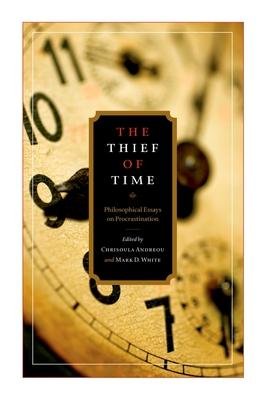When we fail to achieve our goals, procrastination is often the culprit. But how exactly is procrastination to be understood? It has been described as imprudent, irrational, inconsistent, and even immoral, but there has been no sustained philosophical debate concerning the topic.
This edited volume starts in on the task of integrating the problem of procrastination into philosophical inquiry. The focus is on exploring procrastination in relation to agency, rationality, and ethics -- topics that philosophy is well-suited to address. Theoretically and empirically informed analyses are developed and applied with the aim of shedding light on a vexing practical problem that generates a great deal of frustration, regret, and harm. Some of the key questions that are addressed include the following: How can we analyze procrastination in a way that does justice to both its voluntary and its self-defeating dimensions? What kind of practical failing is procrastination? Is it a form of weakness of will? Is it the product of fragmented agency? Is it a vice? Given the nature of procrastination, what are the most promising coping strategies?
| FindBook |
有 2 項符合
The Thief of Time: Philosophical Essays on Procrastination的圖書 |
 |
The Thief of Time: Philosophical Essays on Procrastination 作者:Andreou,Chrisoula(EDT)/White,Mark D.(EDT) 出版社:Oxford Univ Pr 出版日期:2012-05-01 語言:英文 規格:平裝 / 300頁 / 16.5 x 24.1 x 1.9 cm / 普通級 |
| 圖書館借閱 |
| 國家圖書館 | 全國圖書書目資訊網 | 國立公共資訊圖書館 | 電子書服務平台 | MetaCat 跨館整合查詢 |
| 臺北市立圖書館 | 新北市立圖書館 | 基隆市公共圖書館 | 桃園市立圖書館 | 新竹縣公共圖書館 |
| 苗栗縣立圖書館 | 臺中市立圖書館 | 彰化縣公共圖書館 | 南投縣文化局 | 雲林縣公共圖書館 |
| 嘉義縣圖書館 | 臺南市立圖書館 | 高雄市立圖書館 | 屏東縣公共圖書館 | 宜蘭縣公共圖書館 |
| 花蓮縣文化局 | 臺東縣文化處 |
|
|
圖書介紹 - 資料來源:博客來 評分:
圖書名稱:The Thief of Time: Philosophical Essays on Procrastination
|











